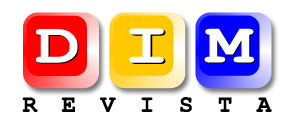Análisis crítico de la formación del profesorado de lengua castellana y literatura para la docencia en el siglo XXI
RESUMEN.
En este trabajo tratamos algunas de las dificultades que debe afrontar el colectivo de profesores de Lengua Castellana y Literatura –tanto en activo como aspirantes a ello- de la Enseñanza Secundaria Obligatoria (E.S.O.) en su trabajo cotidiano, relacionando estas con su formación docente.
Abordamos esta perspectiva, en primer lugar, desde el punto de vista de la formación general del profesorado de este nivel y aludiendo a diez competencias profesionales clave. Partiendo de estas competencias, nos ocupamos de la formación específica de este colectivo, tanto didáctica como en nuevas tecnologías, teniendo en cuenta su formación inicial y cómo esta se debe adaptar al nuevo contexto, el de las aulas donde el profesor debe trabajar y desde donde debe hacer frente a los continuos cambios legislativos, sociales, didácticos o tecnológicos.
PALABRAS CLAVE: Lengua Castellana y Literatura, Formación del profesorado, Nuevas tecnologías
AUTOR
 Pablo Lorente Muñoz (Zaragoza, 1979) <lplorent@unizar.es>>
Pablo Lorente Muñoz (Zaragoza, 1979) <lplorent@unizar.es>>
Profesor de Lengua castellana y Literatura en el IES Bajo Aragón de Alcañiz (Teruel, Aragón).
Licenciado en Filología Hispánica y Filología Francesa. DEA de Teoría de la Literatura y Literatura Comparada. Doctorando en Didáctica de la Lengua y la Literatura.
Escritor (Relatos desde ninguna parte, Eclipsados, Zaragoza, 2010 y otros libros en prensa) y Crítico literario para Heraldo de Aragón, Revista Turia… Ha publicado más de veinte artículos sobre Literatura, Didáctica… <http://www.librorelatospablolorente.blogspot.com>
REFERENCIA BIBLIOGRÁFICA
LORENTE MUÑOZ, Luis Pablo (2012). Análisis crítico de la formación del profesorado de lengua castellana y literatura para la docencia en el siglo XXI. En Revista Didáctica, Innovación y Multimedia, núm. 23 <http://dim.pangea.org/revista23.htm>
Critical analysis of teacher training of Spanish language and literature in the XXI century
ABSTRACT
In this work we analyzed some of the difficulties the Group of teachers of Spanish language and literature – both active and currently in development – in Higher education (E.S.O.) have to face in their daily work, linking these with their pedagogical training.
We are dealing with this issue, first, from the point of view of the general training of teachers at this level, and in this respect we try to emphasize ten key skills. Departing from this set, we take care of the specific training of the group, encompassing teaching and the emergence of new technologies. And finally we show how the initial training of teachers must adapt to the new context of the classrooms where they have to work, being that it is from there that they should deal with the continuous legislative, social, educational or technological changes.
KEYWORDS: Spanish Language and Literature, Teacher Training, New technologies


